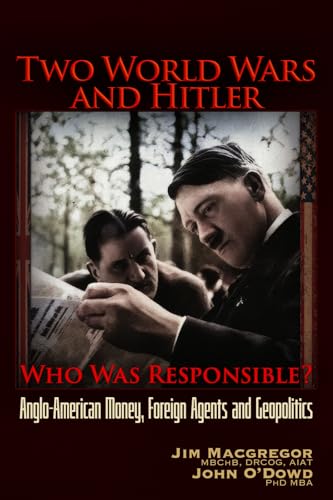
Spain and Argentina in the First World War
by Maximiliano Fuentes Codera
"Transnational Neutralities"
Popularity
0 / 5
* A book's popularity is determined by how it compares to all other books on this website.
Where to buy?
Buy from Amazon* If you buy this book through the link above, we may receive a small commission at no extra cost to you.
Spain and Argentina in the First World War by Maximiliano Fuentes Codera
Details
War:
World War I
Perspective:
Researcher
True Story:
Yes
Biography:
No
Region:
Europe
Page Count:
320
Published Date:
2021
ISBN13:
9780429800184
Description
Brief Summary
Spain and Argentina in the First World War by Maximiliano Fuentes Codera provides an in-depth analysis of the transnational impact of World War I on Spain and Argentina, two countries that chose a path of neutrality during the conflict. The book explores how these nations, despite being distant from the front lines, were significantly influenced by the global dynamics and propaganda efforts of belligerent countries like France, Germany, and Great Britain. With a focus on political and cultural processes, Fuentes Codera examines how Spain and Argentina became arenas of ideological disputes and centers of debate on neutrality, peace, and national identity.
Main Themes and Topics
The book primarily delves into three critical aspects from a transnational perspective. Firstly, it addresses neutrality as a contested space between pro-Allies and pro-German factions, shedding light on how these divisions influenced local political landscapes. Secondly, it explores the intense debates on international positions necessary to guarantee a future devoid of war, providing insights into the peace movements and diplomatic conversations of the era. Lastly, Fuentes Codera discusses the controversies surrounding national and supra-national identities, such as Hispanism, Latinism, and Pan-Americanism, and how these ideologies were intertwined with the wartime narrative. Through meticulous research, the author illustrates how the radicalization in 1917 in both countries played a pivotal role in shaping political changes leading to and following the end of the war.
Writing Style and Tone
Maximiliano Fuentes Codera employs a scholarly yet accessible writing style, making complex historical and political dynamics comprehensible to readers. His tone is analytical and measured, balancing scholarly objectivity with engaging narrative techniques. The text is well-structured, allowing readers to follow the evolving themes and arguments seamlessly. Fuentes Codera's use of primary sources enhances the authenticity of the narrative, providing a robust foundation for his assertions.









